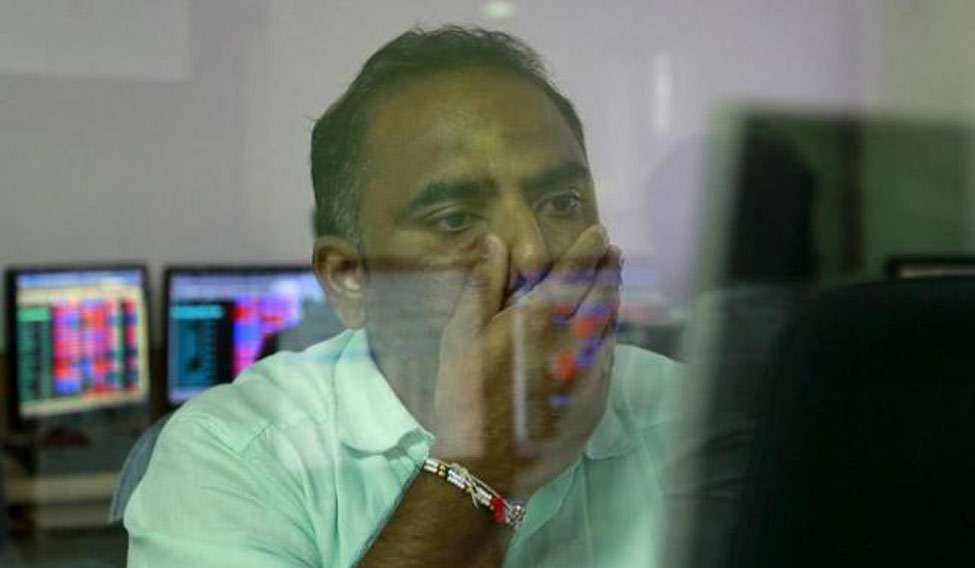A pick up in India's economic growth failed to lift market sentiment on Friday and the equity markets tumbled for another session, amid heavy selling on fiscal deficit worries.
The Bombay Stock Exchange's Sensex ended down 316 points or near 1 per cent at 32,832.94 points. The wider NSE Nifty50 index also fell 105 points or 1 per cent to close at 10,121.80 points.
On Thursday too the equity markets had slumped more than 1 per cent, after figures showed that the country's fiscal deficit had touched 96 per cent of the full year estimate raising concerns that the government may not be able to meet its fiscal deficit target of 3.2 per cent of GDP in the current financial year. For the week, the benchmark indices declined near 2.5 per cent.
“Fiscal deficit numbers were unsupportive for markets with the seven months figure coming in at about 96 per cent of the government's estimates for full year 2017-18. This was up substantially from the 79 per cent number which came in at the same time last year,” said Kunj Bansal, CIO – Equity at Centrum Wealth Management.
Rising crude oil prices is also worrying investors as it will further put pressure on India's fiscal health.
On Friday, of the 30-share Sensex, there were only three stocks that marginally gained. The biggest losers included, Bajaj Auto and Adani Ports, which were down by 3 per cent.
Among other major stocks in the red, Bharti Airtel slumped 2.7 per cent, and Tata Steel, Sun Pharma. Dr Reddy's and State Bank of India were down more than 2 per cent.
The US third quarter economic growth was revised to 3.3 per cent this week, a three-year high, which is also fuelling concerns if foreign institutional investors would pare down some of their investments in emerging markets like India.
After selling equity worth over Rs 24,000 crore in August and September, FIIs turned net buyers again, investing close to Rs 23,000 crore over October and November, taking their total investements in calendar 2017 to Rs 57,135 crore.
The market has largely ignored India's GDP, which rose 6.3 per cent in the July-September quarter, from a three-year low of 5.7 per cent in April-June, given it was largely on expected lines.
“The data suggested that since bottoming-out at the start of the year, recovery is gradually taking hold, led by the industrial sector due to restocking demand and investments,” said Radhika Rao, economist at DBS Bank.
Looking ahead, there are various economic and political events to watch out for in December. The Reserve Bank of India will announce its bi-monthly monetary policy next week. Many analysts expect that the central bank will keep interest rates on hold with inflation rising.
All eyes will also be on the results of the Gujarat assembly elections, which will be a key test to see if Prime Minister Narendra Modi still remains popular. Overseas, what the Federal Reserve does in the US, which will also be closely watched. It is largely expected to raise interest rates there this month.
Overall, with Indian equity markets still trading at expensive valuations, a continued pickup in broader corporate earnings will remain crucial going into 2018, say analysts.
“Benchmark indices are currently trading at around 19 times FY19 consensus estimates. Valuations continue to remain at higher levels for the domestic markets and hence we believe that earnings revival is absolutely critical for such rich valuations to sustain,” said Teena Virmani, vice-president at Kotak Securities.
Virmani expects earnings to start kicking in the coming quarters, with public sector banks recapitalisation, improvement in infrastructure capital expenditure as well as benefits of the low base of the second half of last fiscal year.






